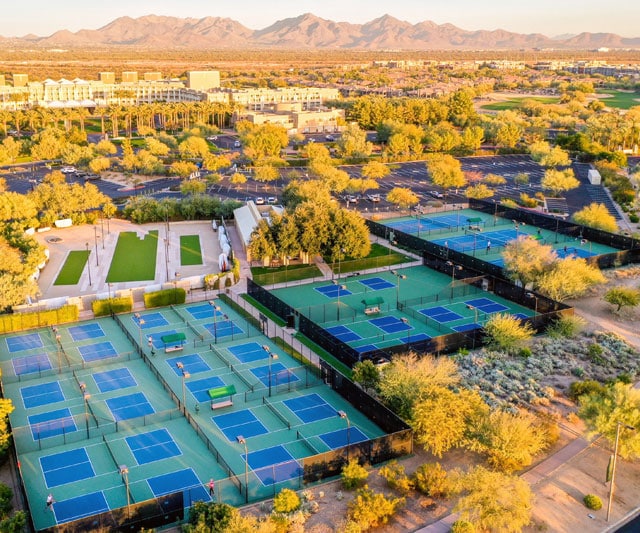There’s nothing quite like getting special treatment while traveling. Think complimentary upgrades to the front of the airplane cabin from the back or being moved from a room with a view of an alley to one overlooking the park. These are perks that travelers with hotel, airline and rental-car elite status have enjoyed for years and ones that became more in reach for average people during the pandemic.
Historically, elite status privileges haven’t been easy to earn, especially at the higher levels. When you sign up for a rewards program, you usually start as a base member, but elite status typically requires substantial spending, numerous flights or many nights spent at a hotel.
In the early days of the pandemic, with nearly all travel shut down, many hotels and airline programs slashed requirements and extended status for members. The pause allowed frequent travelers to maintain the status they had acquired pre-pandemic and even made it easier to qualify for higher tiers. The changes also allowed infrequent travelers — those without corporate credit cards or weekly business trips — to earn top benefits, such as upgrades to suites or the ability to board the aircraft first, typically reserved for big spenders.
But that lower-bar system is about to change with what is being called a “great reset” for travel loyalty programs. Heading into 2023, many programs are reverting to pre-pandemic requirements — and that means people who have enjoyed the perks of elite status for the past two years may find themselves having to go without.
Hotel Programs Are Extending Lifelines
Top-tier status with a hotel loyalty program can earn you anything from a free breakfast (for Hyatt Globalist members) to complimentary premium benefits with a partner program — Marriott Titanium and Ambassador members, for instance, receive additional perks from United Airlines.
For the past two years, it has been relatively easy to earn perks like that. But things are starting to change. Earlier this year, IHG increased qualifying stay and point requirements. Before the pandemic, travelers were required to stay 10 nights (or earn 10,000 points) to earn Gold Elite status. The hotel chain reduced these requirements during the pandemic, with travelers required to stay just seven nights (or earn 7,000 points). But to be eligible for the same status in 2023, guests must stay 20 nights (or earn 40,000 points). Although travelers who earned status under the reduced threshold can keep it through February 2023.
That said, hotels have made it slightly more manageable than airlines have for members to keep their status next year. Hilton, IHG, Hyatt and Marriott have all launched promotions aimed at making it easier for their members to keep qualifying.
For instance, a recent IHG promotion gives members the chance to earn up to Platinum Elite status through the end of next year after just five nights (it’s normally earned after 40 nights) at an IHG hotel. This tier grants members perks such as late checkout and a goodwill gift, like points or a complimentary drink upon arrival. And Hilton recently launched a promotion in which members can earn two night credits for every night stayed at a Hilton hotel through the end of the year.
Some experts say that it’s not worth it for travelers to pursue elite status in hotel programs by booking nights and that they should aim to earn it through hotel-branded credit cards, which grant status based on overall spending, not just hotel stays.
“Hilton, IHG and Marriott — you can pretty easily earn top-tier status just with the credit card,” said Ben Schlappig, a travel expert who runs points and miles website One Mile at a Time. Many hotel rewards cards offer elite status outright for cardholders, and some offer night credits, which can be used to obtain a higher level of status. “And I’d say that’s the much better approach for many people to take because actually qualifying is difficult,” he said.
Airlines, Not So Much
Most airlines are reverting to pre-pandemic requirements. Some, like Alaska Airlines, kept earning structures in place but now offer additional ways to qualify for status.
Members who, for instance, want to earn MVP status through Alaska Airlines are required to earn 20,000 miles — either by flying Alaska, American or another Oneworld Alliance airline — or by flying 30 segments.
But Delta Air Lines’ Medallion program, the most popular of the airline loyalty programs, made waves in the frequent-flyer world last month when it announced sweeping changes to its qualifying tiers.
While the requirements for the lowest tier, Silver Medallion, won’t change, starting in 2023, Gold, Platinum and Diamond members will have to spend more on Delta — an average of 33% more — to maintain their status in 2024. For instance, members with Delta Diamond Medallion status — the highest tier — will need to rack up $20,000 in “medallion qualification dollars,” which are based on how much you spend on Delta flights and SkyTeam partner airlines and certain award tickets.
(Lower-tier members can get this requirement waived after spending at least $25,000 in a calendar year on an airline co-branded credit card, while Diamond Medallion members can get this requirement waived after spending at least $250,000.)
The Diamond Medallion tier is among the hardest to reach, but it comes with perks such as complimentary first-class upgrades, a free membership to expedited security screening program CLEAR and lounge access.
Schlappig said travelers should make plans now (and those plans should be to spend more) — or be prepared to get dropped from their elite-status tiers at the end of the year.
He also noted that chasing status might not be worth it in the end, given the high percentage of first-class seats that are currently sold. On an earnings call last month, an American Airlines executive said it was selling almost 80% of those seats, making far fewer of them available for upgrades.
“That’s a big reason that many people should give up on elite status or not pursue it so heavily if they wouldn’t naturally earn it with flying,” Schlappig said. “It’s a lot of effort for little reward.”
Delta wasn’t the only airline to make sweeping requirement changes to its loyalty program.
Earlier this year, American Airlines revamped its AAdvantage program so that members could, in theory, earn elite status without ever stepping foot on a plane. Members earn what the company calls loyalty points to qualify for different tiers. They can be earned by flying American and other Oneworld Alliance airlines or by spending enough on a branded American Airlines credit card. American’s status calendar resets on March 31.
An American Airlines credit card earns one loyalty point for every base mile earned from making purchases. A traveler trying to reach the Executive Platinum level, American’s highest tier, would need to earn 200,000 loyalty points — which they could earn by spending $200,000 on an American Airlines credit card, even if they never flew on the airline.
AAdvantage members can also earn loyalty points for spending with other travel providers such as Hyatt Hotels, Hertz and Marriott International.
And United Airlines recently announced that it would raise its requirements to earn or maintain elite status. All United MileagePlus members must fly a minimum of four segments on a United or United Express jet. But to earn status during the 2023 qualifying year, travelers will also need to earn either a combination of premier qualifying flights and premier qualifying points, or a certain number of the points. The exact amount required depends on the status level you’re trying to earn.
‘You Don’t Want to Lose Status’
Threads on FlyerTalk, considered the most prominent social-networking platform for elite-status hobbyists, are full of panicked travelers trying to chart out their elite-status path through the end of the year. (It’s important to note, however, that some programs have extended status for members through as late as the spring of next year.)
With less than two months until Dec. 31, some travelers are using unconventional methods to secure top-tier elite status for another year. Strategies for mileage runs — in which a traveler takes a flight solely to rack up qualifying miles or segments — have dominated FlyerTalk boards for months. Other travelers have planned to spend the holiday season in cities like Las Vegas “mattress running” — or booking a stay at a qualifying hotel you otherwise wouldn’t — to keep status with the World of Hyatt program. MGM has several inexpensive hotels in Las Vegas, and the chain partners with Hyatt, meaning nights stayed at these properties will count toward earning status.
Anthony Cave, a copywriter for a cybersecurity nonprofit, is planning a mileage run from Everett, Washington, to Boston — he lives in Las Vegas — to keep his Alaska Airlines Mileage Plan status. He likes having Alaska’s MVP Gold status, but the bigger prize is that Alaska’s program gets him reciprocal benefits with airlines in the Oneworld Alliance, principally American Airlines. Alaska MVP Gold earns flyers Oneworld Sapphire status, granting access to that alliance’s business-class lounges worldwide — a perk that can come in handy before a long-haul international flight.
“You don’t want to lose status,” Cave said. “Especially for me, being 7,000 miles away from MVP Gold; if I don’t get that, I’d be pretty disappointed, just because I’m so close, and I already did all the traveling throughout the year.”
He is also planning to qualify separately for American AAdvantage Gold status by taking a long-haul flight to Sydney next week. Holding onto Gold means that every dollar he spends on American Airlines flights earns him 7 miles (members without any elite status get 5 miles for each dollar spent), earning him perks much more quickly. And the higher his status is, the more miles and, thus, Loyalty Points he’s able to accumulate.
But some road warriors are eagerly awaiting Jan. 1, when most tier qualifications reset.
For months, frequent flyers have bemoaned how long it can take to get into an airport lounge or complained that they have been unable to get upgrades they would have enjoyed pre-pandemic. Among the biggest complaints: the long wait times to access Delta SkyClub lounges, which are open to certain Medallion members as well as to American Express Platinum and Business Platinum cardholders.
It’s something Nick Henderson, a commercial pilot based in Jacksonville, Florida, has noticed — and he’s eagerly awaiting the reset.
He lamented the long lines snaking through the terminal to get into SkyClub lounges and “waiting 30 minutes to get your name on a list to get a text.”
“When I’m transiting through, and I’ve got a two-hour layover, and I’d like to get away from the busy gate area, get a snack and get some work done, I’d like to know that I can get into the lounge,” he said.
Henderson said he was looking forward to returning to a “traditional approach” to elite status, in which those who fly — and spend — the most get rewarded.
“I think that’s going to alleviate some of the pressure on the Sky Clubs and benefits that those of us that travel all the time and work hard to get these statuses bank on,” he said.
c.2022 The New York Times Company. This article originally appeared in The New York Times.







